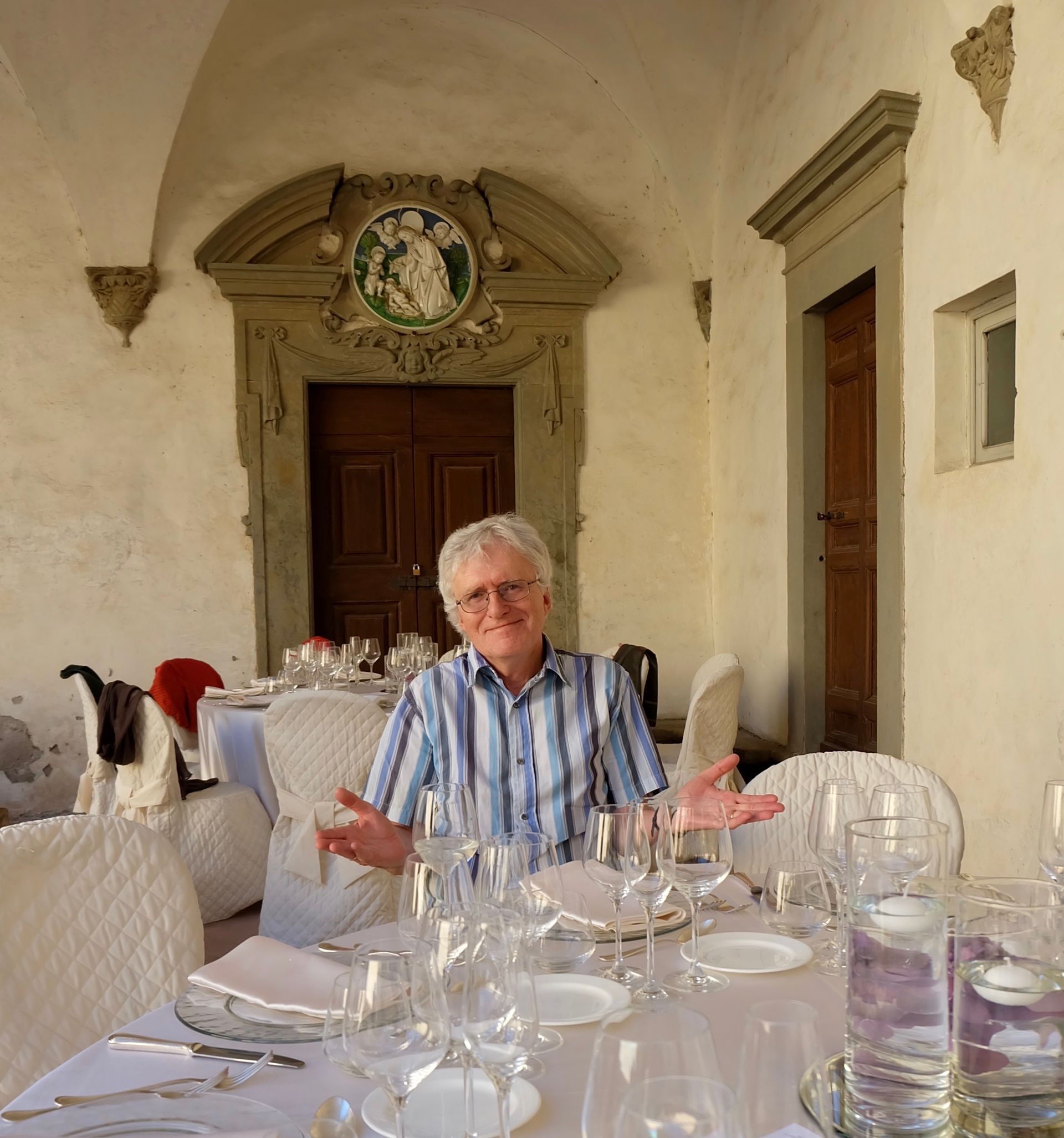Addio a Carlo Vanzina (1951-2018)
Gino Moliterno ANU
 Son of veteran director, Steno (Stefano Vanzina) and younger brother of Enrico, who produced and regularly co-wrote most of his more than 60 films, Carlo Vanzina (1951-2018) could probably, more than any other Italian director, lay claim to have lived his whole life in films. At the age of only one he had appeared in a cameo as the cute infant in Totò e le donne
, one of the many films that Steno had directed for that inimitable “prince of comedy”, Antonio de Curtis. After graduating from the Lycée Chateaubriand in Rome, the young Carlo nurtured hopes of becoming a film critic but was inevitably drawn into a more active role in the cinema, first as an assistant on a handful of his father’s films and then serving a more challenging apprenticeship as assistant director to that other great practitioner of the commedia all’italiana
, Mario Monicelli. In a recent interview Vanzina had remembered how Monicelli regularly gave him a hard time on the set, a practice that he had at first resented but had later understood to be the older director’s way of better teaching him all the finer points of the craft of filmmaking.
Son of veteran director, Steno (Stefano Vanzina) and younger brother of Enrico, who produced and regularly co-wrote most of his more than 60 films, Carlo Vanzina (1951-2018) could probably, more than any other Italian director, lay claim to have lived his whole life in films. At the age of only one he had appeared in a cameo as the cute infant in Totò e le donne
, one of the many films that Steno had directed for that inimitable “prince of comedy”, Antonio de Curtis. After graduating from the Lycée Chateaubriand in Rome, the young Carlo nurtured hopes of becoming a film critic but was inevitably drawn into a more active role in the cinema, first as an assistant on a handful of his father’s films and then serving a more challenging apprenticeship as assistant director to that other great practitioner of the commedia all’italiana
, Mario Monicelli. In a recent interview Vanzina had remembered how Monicelli regularly gave him a hard time on the set, a practice that he had at first resented but had later understood to be the older director’s way of better teaching him all the finer points of the craft of filmmaking.
In 1976 he was able, teaming up with brother Enrico, to write and direct his first feature film, Luna di miele in tre , a sex comedy featuring the stand-up comedian, Renato Pozetto, then just beginning to appear in films. He continued with two films attempting to launch the film careers of I gatti di Vicolo Miracoli, a group of cabaret performers from Verona. The group’s limited talents made these fairly modest affairs but he was able to improve on these early efforts with three films showcasing the unique talents of the ebullient and voluble Diego Abatantuono , another of the emerging comics of the then thriving Milanese cabaret scene. His first major commercial success only came, however, with Sapore di mare (1983), a frothy teen holidays-at-the-beach movie which featured a memorable soundtrack of popular songs of the 1960s. Hot on the heels of the film’s box-office success, in December of that year the brothers released Vacanze di Natale , a holiday comedy which outdid the box-office achievement of the earlier film and effectively marked the birth of the generic formula which hostile film critics would, with pejorative intent, label cinepanettone .
For the next 35 years Carlo and his brother continued to turn out, often at the rate of two, sometimes three, films a year, a host of what film critics regularly criticised as repetitive and superficial comedies but which, in a time of falling cinema attendance, always managed to attract a younger audience. The cinepanettoni in particular, cleverly both set in and released during the Christmas period, proved uniquely successful in drawing entire families back into the cinemas in what became for many a ritual occasion. There were occasional forays into other genres, as in their reasonable attempts at the giallo in films such as Sotto il vestito niente (1985) and Squillo (1996) and a number of clear commercial misses: their perhaps foolhardy attempt in 2005 to revive the legendary character of Er Monnezza , made famous by Thomas Milian in several of the more memorable polizieschi of the 1970s, was decidedly unsuccessful and shunned by even their more rusted-on fans. But the Vanzina hallmark was always a cinema of fun and entertainment and, although decried by the critics as mere panem et circenses , represented, as even the critics themselves were eventually forced to admit, a genuinely popular cinema. It’s undeniable that the self-indulgence and the crass behaviour of the stereotypical characters, especially in some of the earlier films, often appear to reflect back on the quality of the films themselves. By the same token, even if presented without the censure which would have occurred in the cinema impegnato , the lamentable behaviour of Italians going through the various phases of Berlusconization was put on show in these films, so much so that the report of Vanzina’s death has regularly appeared in the Italian press under the byline, “ha raccontato l’Italia”.
Share this:
- Share on Tumblr
- </div></li><li class="share-end"/><li class="share-reddit"><div class="reddit_button"><iframe src="https://www.reddit.com/static/button/button1.html?newwindow=true&width=120&url=https%3A%2F%2Facis.org.au%2F2018%2F07%2F16%2Faddio-a-carlo-vanzina-1951-2018%2F&title=Addio%20a%20Carlo%20Vanzina%20%281951-2018%29" height="22" width="120" scrolling="no" frameborder="0"/></div></li><li class="share-end"/></ul></div></div></div></div></div> <div id="jp-relatedposts" class="jp-relatedposts"> <h3 class="jp-relatedposts-headline"><em>Related</em></h3> </div></div> </div>








